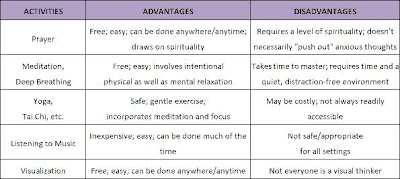
ADHD is not like the chicken pox. You don't "get" ADHD somewhere along the road of life; you're born with it. And if you're reading this now, you've obviously survived the impact of it thus far; it's nothing new...though it may be a new area of emphasis as you work on improving your overall performance or quality of life.
Like dozens of other web sites, we could list dozens of highly successful famous people who either achieved their success despite ADHD or who attribute part of their success to their ADHD. That's fun, and maybe a bit inspiring on some level, but to me that's like saying "Lance Armstrong is a middle-aged white guy just like you, Ed!" -- as if to imply that just because Lance and I share a couple of characteristics, I should aspire to be a 7-time Tour De France champion. Ain't. Gonna. Happen.
When I try to keep perspective on the impact of ADHD in my life, I try to personalize it more than that. Forget about the comedians, CEOs and movie stars with ADHD. Looking back over my own life, what obstacles have I overcome even when ADHD was a barrier? What accomplishments have I achieved where the impact of ADHD probably benefitted me? Well...I earned a Master's Degree; not an exactly ADHD-friendly pursuit. and I've had some success with creative writing and public speaking, where I think the energy and stream-of-consciousness thought process that accompany ADHD were assets.
I'll never be a millionaire. Having ADHD probably hurts my chances of achieving a goal like that but, let's be real, I can hardly lay the full blame of my non-millionaire-ness at the feet of my ADHD. There are also variables like general intelligence, level of ambition and tolerance for risk that play much larger roles in my having a more modest lifestyle.
So: Perspective. How do you keep yours?
(Want to add your comment but not 100% sure how to do so? It's easy. Click here for a super-quick tutorial!)





















